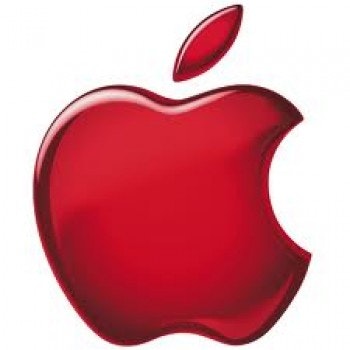It is no secret to Apple (NASDAQ:AAPL) followers that the company is widely expected to unveil some sort of online radio service. Many anticipate that the service could launch this year, and that it could wreak havoc on Pandora Media Inc (NYSE:P)’s business. Yet, such a move might put Apple itself at risk.
Apple bulls stress the company’s ecosystem
I’ve written previously about one of the most powerful arguments in favor of Apple: that it has an ecosystem that will keep its customers loyal. As I laid out in this previous post, such an ecosystem is largely built on a cursory argument, and the supposed factors that make it hard to abandon Apple products are, for the most part, exaggerated.
However, if there is one feature of Apple’s core business that keeps its customers loyal it is iTunes. Media purchased on iTunes — whether it be music, books, TV episodes or movies — is best consumed on Apple’s own devices.
Music bought from iTunes can be burned to a CD, or otherwise played on a non-Apple device. But it is most convenient for users to listen to the songs they’ve purchased on an iPod or iPhone.
If a consumer has a large iTunes library, composed of hundreds of songs, they may be loathe to abandon Apple’s devices. After all, that’s potentially hundreds or thousands of dollars they have sunk into media — songs they might have to repurchase or otherwise jump through hoops to get them onto their non-Apple devices.
Google Inc (NASDAQ:GOOG), perhaps with this fact in mind, launched Google Music late in 2011. On the surface, the service seems like just another music store, no different from or iTunes. And yet, Google’s Music store has one key difference.
Google Music allows anyone with an account to upload as many as 20,000 mp3 files free of charge; files that will be hosted on the cloud and tied to the account for streaming or downloading purposes.
The feature appears to be almost a direct shot at Apple. Users with large iTunes libraries, fearing losing them should they abandon the iPhone in favor of an Android device, can use Google Music’s uploading feature to maintain access to their music library.
Offering a subscription radio service would threaten Apple’s iTunes
If Apple shifts away from this model to one similar to Pandora, it risks losing this advantage. A consumer who pays a set monthly fee to get access to music (rather than having sunk untold dollars into building a library) is a consumer with very low switching costs.
But Apple might not have a choice.
Apple’s iconic founder, Steve Jobs, was never one to shy away from making his products obsolete.
In the 1980s, the original Macintosh may have cannibalized sales of the company’s other PCs, like the Lisa. More recently, it is undeniable that the iPhone rendered the iPod largely obsolete.
Jobs has been quoted as sayingthat “if anybody’s going to make our products obsolete, I want it to be us.”
Perhaps then that is why Apple is willing to step into the Internet radio game, even if it hurts their larger iTunes business. As consumers gain increasing access to high speed Internet connections, via their smartphones or other devices, the appeal of streaming music online becomes more attractive.
In the wake of this shift, companies that provide this service have flourished: not only Pandora, but also Spotify and Rhapsody.
Pandora, Spotify and Rhapsody all offer slightly different experiences for consumers. Pandora focuses on radio stations tailored to a listener’s preferences; Spotify and Rhapsody allow the user to listen to just about any song they want anytime they want (Spotify differentiates itself from Rhapsody with a social networking component).
Who’s to say that Apple must follow what these companies have done? Perhaps the Cupertino tech giant has something else up its sleeve.
Apple could sell radio stations individually
A new clue in the ongoing Apple radio saga turned up Tuesday. Users discovered that Apple had hidden new graphical icons within its latest software update for the iPad. These buttons are unlike anything Apple has used before, but appear to suggest radio functionality.
9to5Mac speculates that the buttons might be used to purchase individual radio stations based on a particular song or artist.
That would be a novel twist, but it would protect Apple’siTunes business to some extent. Rather than having a library full of purchased songs, users would have a library full of purchased radio stations.
Perhaps that is what Apple will do. On the surface, such an option doesn’t seem particularly appealing: Why purchase individual radio stations when a consumer can get access to the best of Pandora for a relatively paltry $3.99 per month?
Maybe Apple plans to sell such stations for pennies, but anything nearing $0.99 would seem to tip the balance back in favor of Pandora.
At any rate, the entire concept remains incredibly speculative. Still, given the persistence of the rumor (and Tuesday’s uncovering of the icons) it seems highly likely that an Apple Internet radio is in the works. How that will affect the larger company, or its shareholders, remains to be seen.
The article Apple’s Quest to Kill Pandora May Make Itself the Victim originally appeared on Fool.com and is written by Salvatore “Sam” Mattera.
Copyright © 1995 – 2013 The Motley Fool, LLC. All rights reserved. The Motley Fool has a disclosure policy.





